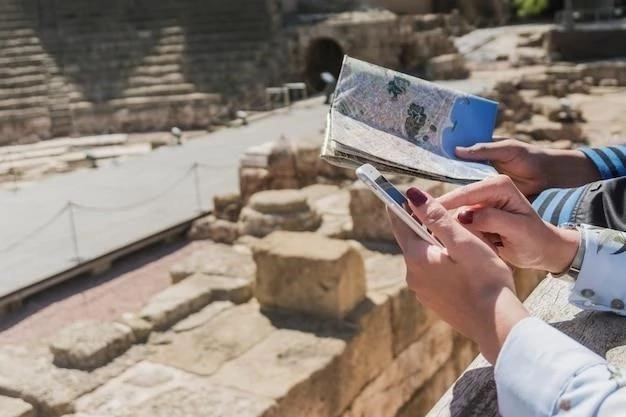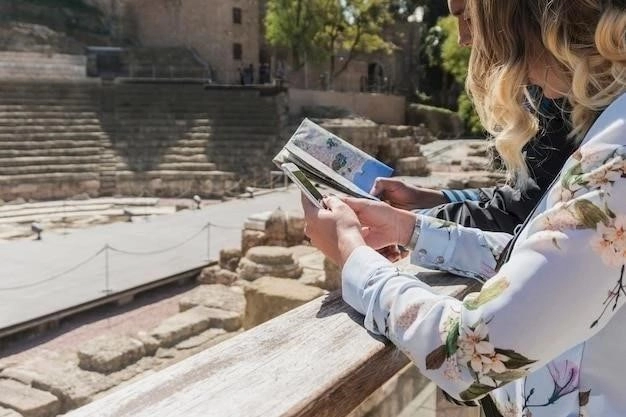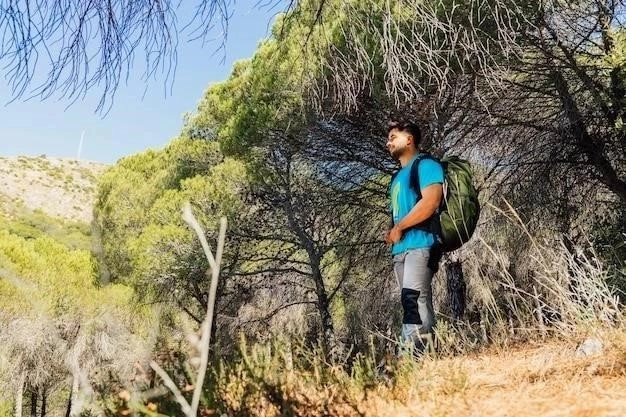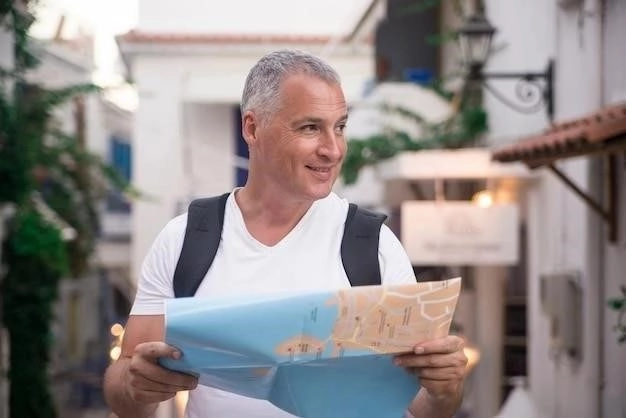Cyprus Travel Guide 2024
Embark on an unforgettable journey to Cyprus, an island nation in the eastern Mediterranean renowned for its captivating blend of history, culture, and natural beauty. Explore ancient archaeological sites, relax on sun-kissed beaches, and immerse yourself in the vibrant local culture. Whether seeking adventure, relaxation, or cultural immersion, Cyprus offers a diverse range of experiences for every traveler.
Planning Your Trip
When planning your Cyprus adventure, meticulous preparation ensures a seamless and rewarding experience. Begin by identifying your interests, whether it’s exploring ancient ruins, indulging in watersports, or immersing yourself in local culture. Consider the duration of your stay and your desired pace of travel. Research the various regions of Cyprus, each offering unique attractions and experiences.
Next, determine the most suitable time to visit based on your preferences for weather and crowds. Spring and autumn offer pleasant temperatures ideal for outdoor activities, while summer boasts sunshine and bustling beaches. Secure your travel essentials, including flights, accommodation, and travel insurance, well in advance. Familiarize yourself with visa and entry requirements, ensuring a smooth arrival process.
Finally, delve into the local customs and etiquette, currency exchange rates, and transportation options to navigate Cyprus with ease. With careful planning, your Cyprus trip will be an unforgettable blend of relaxation, discovery, and cultural immersion.
Best Time to Visit
Cyprus boasts a Mediterranean climate, characterized by long, sun-drenched summers and mild, wet winters, making it an appealing destination year-round. However, the ideal time to visit depends on your priorities and desired experiences.
For those seeking idyllic beach weather and vibrant nightlife, the summer months, from June to August, are ideal. Expect scorching temperatures, perfect for swimming, sunbathing, and enjoying water sports. However, this peak season also sees a surge in crowds and higher prices.
Spring (April-May) and autumn (September-October) offer a delightful balance of pleasant temperatures, fewer crowds, and blooming flora. These shoulder seasons are perfect for exploring ancient sites, hiking in the Troodos Mountains, and enjoying a more tranquil atmosphere. Winter (November-March) is mild, with occasional rainfall, ideal for those seeking a quieter escape and opportunities for cultural exploration.
Visas & Entry Requirements
Ensuring a smooth entry into Cyprus requires a clear understanding of the visa and entry requirements based on your nationality. Citizens of European Union (EU) member states can enter Cyprus with a valid passport or national identity card for an unlimited period.
Nationals of certain countries outside the EU may enter Cyprus visa-free for short stays, typically up to 90 days within a 180-day period. However, it is crucial to verify the specific visa-free duration applicable to your nationality. For extended stays or purposes other than tourism, such as work or study, a relevant visa must be obtained from the Cyprus embassy or consulate in your home country before traveling.
Furthermore, ensure your passport’s validity extends for at least six months beyond your intended stay and has sufficient blank pages for entry and exit stamps. It is advisable to consult the official website of the Cyprus Ministry of Foreign Affairs or your local Cyprus embassy for the latest entry regulations and any specific requirements pertaining to your nationality.

Currency & Budget
The official currency of Cyprus is the euro (€), making it convenient for travelers from eurozone countries. For other currencies, exchange services are widely available at banks, exchange bureaus, and hotels. Credit cards are widely accepted in most establishments, but it’s advisable to carry some cash for smaller businesses and local markets.

Your travel budget will depend on your spending habits and preferred level of comfort. Accommodation costs vary significantly from budget-friendly hostels to luxurious resorts. Dining options range from affordable tavernas serving local delicacies to upscale restaurants. Transportation costs are relatively reasonable, with options for car rentals, buses, and taxis.
To estimate your budget, consider factors like accommodation, meals, activities, and transportation. It’s always wise to factor in a contingency for unexpected expenses. With careful planning and consideration for your spending preferences, you can enjoy a fulfilling Cyprus experience within your budget.
Getting Around Cyprus

Navigating Cyprus is relatively easy, thanks to its well-maintained road network and various transportation options. For independent exploration, car rental is a popular choice, offering flexibility and convenience. International car rental companies operate at major airports and cities, and an International Driving Permit is recommended.
Cyprus follows a left-hand driving system, which may require adjustment for visitors from countries with right-hand traffic. Public buses provide an affordable and reliable means of traveling between cities and towns. Intercity buses connect major hubs, while local buses serve within urban areas. Taxis are readily available, particularly in tourist areas, and fares are generally metered.
For shorter distances, walking is a pleasant option in cities and towns, while cycling is popular in coastal areas. However, be mindful of traffic conditions and road safety regulations. With careful planning and consideration for your transportation preferences, you can effortlessly explore the diverse landscapes and attractions of Cyprus.

Accommodation in Cyprus
Cyprus presents a diverse array of accommodation options to suit every traveler’s preference and budget, from luxurious beachfront resorts to charming boutique hotels and cozy apartments. Whether seeking relaxation, adventure, or cultural immersion, Cyprus offers a comfortable and welcoming stay for every visitor.
Hotels & Resorts
Cyprus boasts an impressive selection of hotels and resorts, catering to a wide spectrum of tastes and budgets. From opulent beachfront properties to charming boutique hotels nestled in historic villages, there’s an ideal accommodation for every traveler seeking comfort and luxury.
Many resorts are concentrated along the picturesque coastline, offering breathtaking sea views, private beaches, and an array of amenities, including swimming pools, spas, and fine-dining restaurants. These establishments provide a haven of relaxation and indulgence, perfect for romantic getaways, family vacations, or simply unwinding under the Mediterranean sun.
For those seeking a more intimate and personalized experience, boutique hotels offer a unique blend of style, comfort, and local charm. Often housed in restored historic buildings, these accommodations provide a glimpse into the island’s rich heritage while offering modern amenities and attentive service.
Villas & Apartments
For travelers seeking a home-away-from-home experience with added privacy and flexibility, Cyprus offers a wide selection of villas and apartments available for rent. From cozy studios ideal for couples to spacious villas accommodating larger families or groups, these self-catering accommodations provide a comfortable and independent stay.
Many villas boast private pools, gardens, and outdoor spaces, perfect for al fresco dining or simply soaking up the Mediterranean sun. Apartments offer a range of amenities, from fully equipped kitchens to laundry facilities, allowing for a hassle-free stay.
Located in both coastal and inland areas, villas and apartments provide easy access to beaches, attractions, and local amenities. Whether seeking a tranquil retreat or a base for exploration, these accommodations offer a comfortable and personalized experience for your Cyprus adventure.
Agrotourism

For travelers seeking an authentic and immersive Cypriot experience, agrotourism offers a unique opportunity to connect with the island’s rural life and traditions. This form of tourism allows you to stay in charming guesthouses, traditional village houses, or renovated farmhouses, often run by local families passionate about sharing their heritage.
Agrotourism accommodations provide a tranquil escape from bustling tourist areas, offering a glimpse into the slower pace of life in Cyprus’ countryside. Guests can engage in activities such as olive harvesting, winemaking, cheese production, or simply enjoy the serene surroundings and fresh, locally sourced meals.
This form of tourism fosters sustainable practices and supports local communities, allowing visitors to experience the genuine warmth and hospitality of Cyprus while minimizing their environmental impact.

Top Tourist Attractions
Cyprus captivates visitors with its wealth of historical sites, picturesque landscapes, and vibrant cultural experiences. From ancient ruins to pristine beaches and charming villages, the island offers a diverse range of attractions for every traveler’s interest.
Kato Paphos Archaeological Park
Step back in time at the Kato Paphos Archaeological Park, a UNESCO World Heritage Site that unveils the remnants of Cyprus’ rich history. Explore a captivating collection of Roman villas adorned with exquisite mosaics, each depicting scenes from Greek mythology and daily life.
Marvel at the intricate details of the House of Dionysos, the House of Theseus, and the House of Aion, showcasing the artistic prowess of a bygone era. Discover the remains of the Odeon, an ancient theater that once hosted musical and theatrical performances.
Wander through the Agora, the ancient marketplace, and envision the bustling activity of daily life in Roman Paphos. The Kato Paphos Archaeological Park offers a glimpse into the island’s glorious past and the enduring legacy of its civilizations.
Lara Bay Turtle Conservation Station
Escape to the secluded beauty of Lara Bay, a renowned nesting ground for loggerhead and green turtles, and witness a testament to conservation efforts in Cyprus. Located within the Akamas Peninsula National Park, this protected area provides a sanctuary for these endangered creatures to nest and thrive.
Visit the Lara Bay Turtle Conservation Station, where dedicated conservationists monitor turtle activity, protect nests, and educate visitors on the importance of preserving these magnificent creatures. Observe firsthand the remarkable journey of hatchlings as they make their way to the sea.
The Lara Bay Turtle Conservation Station offers a poignant reminder of the fragility of nature and the importance of responsible tourism in protecting Cyprus’ natural heritage.
Ayia Napa’s Bridge of Love
Discover a whimsical natural wonder along Ayia Napa’s rugged coastline—the Bridge of Love. This picturesque rock formation, sculpted by centuries of wind and wave erosion, forms a natural archway extending into the azure waters of the Mediterranean Sea.
Legend holds that couples who share a kiss beneath the bridge will be blessed with eternal love and happiness. Whether or not you believe in folklore, the Bridge of Love provides a romantic backdrop for a leisurely stroll, capturing stunning photographs, or simply marveling at the beauty of nature’s artistry.
The Bridge of Love stands as a testament to the captivating landscapes found along Cyprus’ shores, inviting visitors to embrace the island’s romantic allure.
Aphrodites Rock
Venture to the legendary birthplace of Aphrodite, the ancient Greek goddess of love and beauty, at Petra tou Romiou, also known as Aphrodite’s Rock. This iconic sea stack, rising majestically from the turquoise waters off the coast of Paphos, holds a mythical allure that has captivated hearts for centuries.
Legend has it that Aphrodite emerged from the sea foam at this very spot, her ethereal beauty captivating all who beheld her. While swimming around the rock is said to bring eternal youth, the true enchantment lies in witnessing the raw beauty of nature’s creation, especially mesmerizing at sunset.
Aphrodite’s Rock stands as a testament to Cyprus’ enduring connection to mythology and the captivating allure of its natural wonders.
Troodos Mountains
Escape the coastal heat and ascend to the cool, pine-scented heights of the Troodos Mountains, Cyprus’ majestic mountain range. Explore a landscape of rugged peaks, verdant valleys, and charming villages, each offering a glimpse into the island’s rural heartland.
Embark on scenic hikes through forested trails, discovering hidden waterfalls and breathtaking panoramic views. Visit ancient monasteries adorned with Byzantine frescoes, testaments to Cyprus’ rich religious heritage. Sample locally produced wines at family-run wineries, savoring the unique flavors of the Troodos terroir.
The Troodos Mountains provide a refreshing escape from the hustle and bustle of coastal resorts, offering a tranquil retreat amidst nature’s embrace.
Larnaca Salt Lake
Witness a natural spectacle at the Larnaca Salt Lake, a seasonal saline lake that transforms into a haven for migratory birds during the winter months. Located on the outskirts of Larnaca, this expansive lake attracts flocks of pink flamingos, creating a breathtaking sight against the backdrop of the shimmering water.
Take a leisurely stroll along the designated pathways, observing the graceful movements of the flamingos and other birdlife. Visit the nearby Hala Sultan Tekke, an important Muslim shrine, adding a touch of cultural immersion to your visit.
The Larnaca Salt Lake offers a serene escape from the city’s bustle, showcasing the beauty of Cyprus’ natural landscapes and the wonders of avian migration.
Saint Hilarion Castle
Journey to a realm of medieval grandeur at Saint Hilarion Castle, a majestic fortress perched atop a rugged mountain peak overlooking the Kyrenia coastline. Constructed during the Byzantine era, this well-preserved castle boasts a fascinating history, having served as a monastery, a royal residence, and a strategic lookout point.
Ascend through its fortified gateways, exploring courtyards, chambers, and ramparts that offer breathtaking panoramic views of the surrounding landscapes. Legend has it that the castle was named after a hermit monk, Saint Hilarion, who sought refuge in its secluded heights.
Saint Hilarion Castle stands as a testament to Cyprus’ turbulent past and the ingenuity of its medieval architects, inviting visitors to step back in time and immerse themselves in its captivating history.

Sustainable Tourism in Cyprus
Cyprus is committed to promoting sustainable tourism practices that preserve its natural beauty, cultural heritage, and local communities for generations to come. Embrace responsible travel by supporting eco-friendly initiatives and minimizing your environmental impact.
Cyprus Sustainable Tourism Initiative (CSTI)
The Cyprus Sustainable Tourism Initiative (CSTI) plays a pivotal role in advancing sustainable tourism practices across the island. As a non-profit organization, CSTI collaborates with stakeholders from the tourism industry, government agencies, and local communities to promote responsible tourism development.
Their initiatives focus on environmental protection, cultural preservation, and socio-economic benefits for local communities. CSTI provides guidance and support to tourism businesses seeking to adopt sustainable practices, such as energy efficiency, water conservation, and waste reduction.
Through their efforts, CSTI aims to ensure that tourism in Cyprus contributes positively to the island’s well-being, preserving its natural and cultural treasures for generations to come.
CSTI’s Climate Action Plan in Tourism 2024
Recognizing the urgent need to address climate change, the Cyprus Sustainable Tourism Initiative (CSTI) has launched its Climate Action Plan in Tourism 2024. This comprehensive plan outlines a roadmap for the tourism industry to mitigate its environmental impact and adapt to the challenges posed by a changing climate.
The plan focuses on key areas such as reducing carbon emissions, promoting energy efficiency, conserving water resources, and managing waste sustainably. It encourages tourism businesses to adopt eco-friendly practices, invest in renewable energy sources, and raise awareness among travelers about responsible tourism behaviors.
CSTI’s Climate Action Plan in Tourism 2024 reflects Cyprus’ commitment to aligning its tourism industry with global sustainability goals, ensuring the long-term preservation of its natural beauty and cultural heritage.










